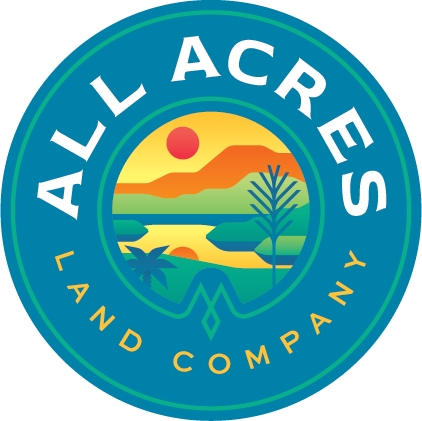Vacant land can be many wonderful things: a great investment, a legacy for your family, and a great place to camp, develop, or more. However, simply holding on to vacant land can also end up becoming a real drag: its costs slowly but steadily add up. There are annual taxes and possibly liability insurance to consider, along with potentially homeowner association fees to take into account. Land, unlike a home or investment property, does not offer any significant tax benefits. Sometimes there’s property maintenance costs associated with land too – brush and debris clearing, tree maintenance, and more. Call us at All Acres Land Company at (850) 788-3767 to discuss the various ways holding onto vacant land is costing you.
Creeping and Accumulating Annual Costs
Purchasing vacant land fortunately might not be as pricey as buying a home or improved property, but don’t forget about the annual taxes! Depending on the location, zoning, recent sales history, and the appraisal cycle of your local property appraiser, the city/county property taxes are typically few hundred dollars to a few thousand dollars. If you decide to hold onto your vacant property and don’t have any immediate plans to improve or develop it, these costs really add up over time. Years down the road, after paying yet another property tax bill in mid-November, you might suddenly realize you’ve now paid double, triple, or a multiple greater than what you did for the property in annual taxes and have nothing to show for it but the same, unimproved piece of vacant land. This is a very common story we hear at All Acres Land Company. These annual costs are greater if you’re (smartly) paying for liability insurance as well.
Another potential annual cost are HOA fees. If you purchased land in a community with an association, these fees might also be a few hundred or a few thousand dollars a year, depending on the HOA and the services they’re (hopefully) providing along with amenities.
There’s another sneaky cost that can come into the picture during your time of ownership as well. These are special assessments you have little to no control over, like a public utility expansion, or other special municipal projects that could be added to your annual tax bill. These might improve the value of your land, but sometimes these improvements don’t effectively “pay for themselves.”
Lack Of Tax Benefits
Owning vacant land longer term can be a nice investment asset alongside a diversified portfolio. However, a major downside of land versus other types of investments is it has significantly fewer tax benefits than improved real estate. You obviously can’t depreciate vacant land! Typically vacant land wouldn’t qualify for a homestead exemption, although you might be able to get an agricultural exemption depending on the size, type, and location of your property.
Negative Cash Flow
Holding on to vacant land unfortunately is a liability to your personal balance sheet as it just costs money – it’s negative net cash flow. There’s no home or building to rent out and collect monthly lease payments. Depending on the zoning/land use of your property, you might be able to recoup some of those annual tax fees by using your vacant lot as extra rental space. Side note: if you do allow other people to access your land for whatever reason, you should strongly consider buying liability insurance for your property. Don’t learn that lesson the hard way!
Hidden Property Maintenance
Holding onto vacant land has costs you might not have considered when you initially purchased it. These are often referred to as “hidden” or “shadow” costs. If your property is within a city boundary (as opposed to unincorporated county), the municipal government may require you to keep your property mowed and/or cleared of debris at all times. If you have a lot of trees, they may require you to clean up the brush to guard against fires. Before or after a hurricane, either the city or your neighbor may politely (or not so politely!) require or ask you to clean up a dead/down tree or potential debris. We’ve also seen vacant land not in the nicest of areas that hasn’t been visited in years suddenly become a local dumping ground, turning it into a miniature landfill! This trash and garbage might trigger code violations by the city or county, and can be costly to have everything removed to the local government’s standards. Occasionally, depending on the land’s prior use or its location, there may also be unknown contaminants or toxic waste on this land that you are unaware of, but once discovered, this is often prohibitively expensive to clean up.
Unpredictable Market Conditions
Holding onto vacant land for too long can sometimes be a big mistake. If you bought your property while the market value was high and hold onto it for too long, the value might decrease more than you expect. There are tens of thousands of Florida landowners who bought vacant lots and acreage during peak markets in the 1980s, 90s, and mid-2000s, who may never see their original purchase + closing costs + accrued property taxes paid back in their lifetime. It’s sad, but we see it all the time. We usually end up talking to and working with their spouse, children, or other heirs. Depending on your purchase price, your annual property taxes, insurance, and other expenses can frustratingly end up digging the hole further year after year.

